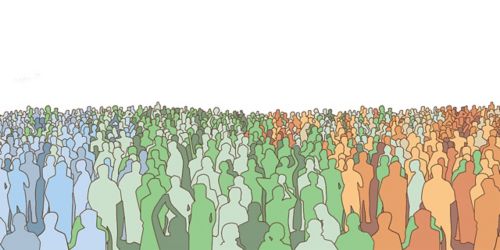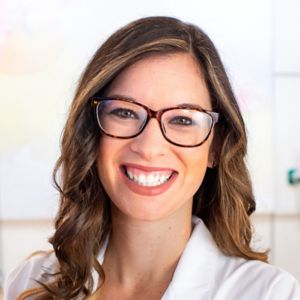St. Jude Family of Websites
Explore our cutting edge research, world-class patient care, career opportunities and more.
St. Jude Children's Research Hospital Home

- Fundraising
St. Jude Family of Websites
Explore our cutting edge research, world-class patient care, career opportunities and more.
St. Jude Children's Research Hospital Home

- Fundraising
My journey to clinical research and becoming a grant-funded scientist

Dylan Graetz, MD, sought a fellowship where she could provide patient care and improve more lives through public health research. At St. Jude, she can do both.
This spring, after more than a decade of post-college training, I graduated fellowship training and received my first grant. I am finally an attending — a board-eligible pediatric oncologist. For the first time in my life, I am also a grant-funded scientist.
In my medical school application essay years ago, becoming a pediatric oncologist was “the dream,” and my ultimate goal. I attended the University of Connecticut for medical school, which offered a joint degree program that included a Master’s in Public Health. I wanted to provide individual clinical care, but also thought the public health perspective would broaden my reach – to improve more lives through systematic change.
A different kind of bench
I never thought of myself as a scientist — only lab researchers were scientists. I respected the lab and at times considered doing this type of science, but a summer pipetting was enough of the bench for me.
But that is only one type of research. My public health research took me to India, where I worked with a medical anthropologist to study anemia in a slum community in Mumbai, conducting mixed methods research. We were looking at anemia as a marker of gender discrimination through both qualitative and quantitative methods. By combining these methodologies, we were able to give a voice to the study participants and integrate measurable results with personal experiences.
Through surveys of adolescent girls and interviews of their mothers, I found that the most interesting questions are often the ones we don’t know to ask. In Mumbai, we sought to investigate anemia as a potential indicator of gender discrimination but ended up learning much more about body image and voluntary diet restriction. I understood that conducting this field work and finding answers to these unasked questions was research. It was the kind of research I could get behind.
Prioritizing clinical research
I specifically targeted my applications to fellowship programs that prioritized rigorous clinical research. I needed to learn the tools of investigation and have the opportunity to apply them. Carlos Rodriguez-Galindo, MD, Executive Vice President, Chair of the Department of Global Pediatric Medicine and Director of St. Jude Global, and Justin Baker, MD, Chief of the Division of Quality of Life and Palliative Care, told me the research community at St. Jude would nurture my ideas and teach me needed investigational skills. I chose St. Jude not just to find answers, but to also learn what questions need to be asked.
Rodriguez-Galindo and I spent hours talking about the cultural context of cancer in provider-family communication and how that affects quality of care and pediatric cancer outcomes. Through these conversations, I was introduced to Jennifer Mack, MD, MPH, associate chief, Population Sciences for Pediatric Hematology/Oncology at Dana-Farber Cancer Institute. Also a senior oncologist, Mack is an expert in pediatric cancer communication, and agreed to mentor me from a distance. She taught me how to be a physician-scientist and encouraged me to pursue grant funding.
Researching cancer communication
I was honored to recently receive a Conquer Cancer Young Investigator Award from the American Society of Clinical Oncology. This grant enables research to hopefully provide a foundation for my career. The funded study, “Parent-physician communication and medical decision-making for children with cancer in Guatemala,” is a mixed-methods study that explores the beliefs of parents of children with cancer as well as their communication priorities, provider-parent information-exchange, and decision-making. While patient-centered communication has been prioritized in high-income countries, it has not been adequately explored in low- and middle-income countries where more than 90% of children with cancer live, and more than 80% of childhood deaths occur.
I hope our findings from this project in Guatemala help us develop strategies for evaluating cancer communication in other limited-resource settings. Additionally, this project may lead to site-specific interventions that can be utilized by our global partners to ensure their ability to continue to provide high-quality cancer care.
As an early career investigator, I have spent the last couple of years learning the currency of scientific research: grant writing and manuscript publication. It is an arduous process resulting in more letters of rejection from journals and funding agencies than acceptance. But perhaps there is a reason they say hope springs eternal. As the flowers bloom and the days in Memphis grow long and hot, I am inspired by this moment of graduation and grant funding. Perhaps, with persistence and encouragement, dreams can become reality.






